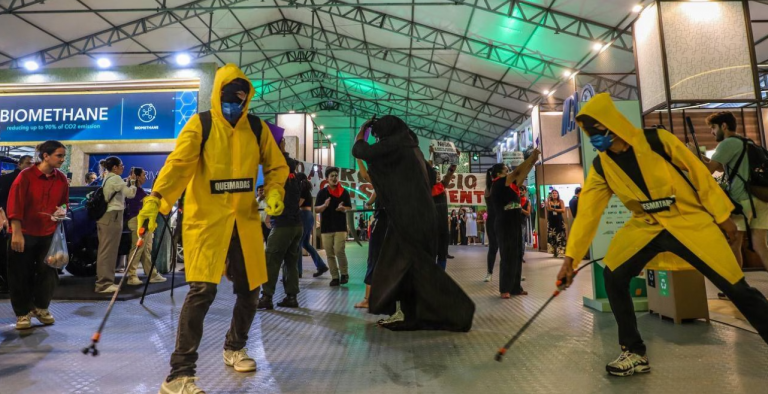Pesticide Industry ‘Hijacked’ Climate Stage At COP30
Syngenta and other pesticide companies used the COP30 climate conference in Brazil to promote programmes to recover damaged pastureland that campaigners fear will drive increased use of toxic chemicals.
Trade groups hosted multiple events to promote a technique known as ‘degraded pasture recovery’, in which land that has been damaged by overgrazing or other forms of poor management is converted to grow soy, sugarcane, corn, or other crops.
Brazil says the approach will help reduce pressure on forests by opening up fresh tracts of arable land. The country has set a target to convert 40 million hectares of damaged pasture into production zones for food crops and biofuels over the next decade — an area almost twice the size of the UK.















